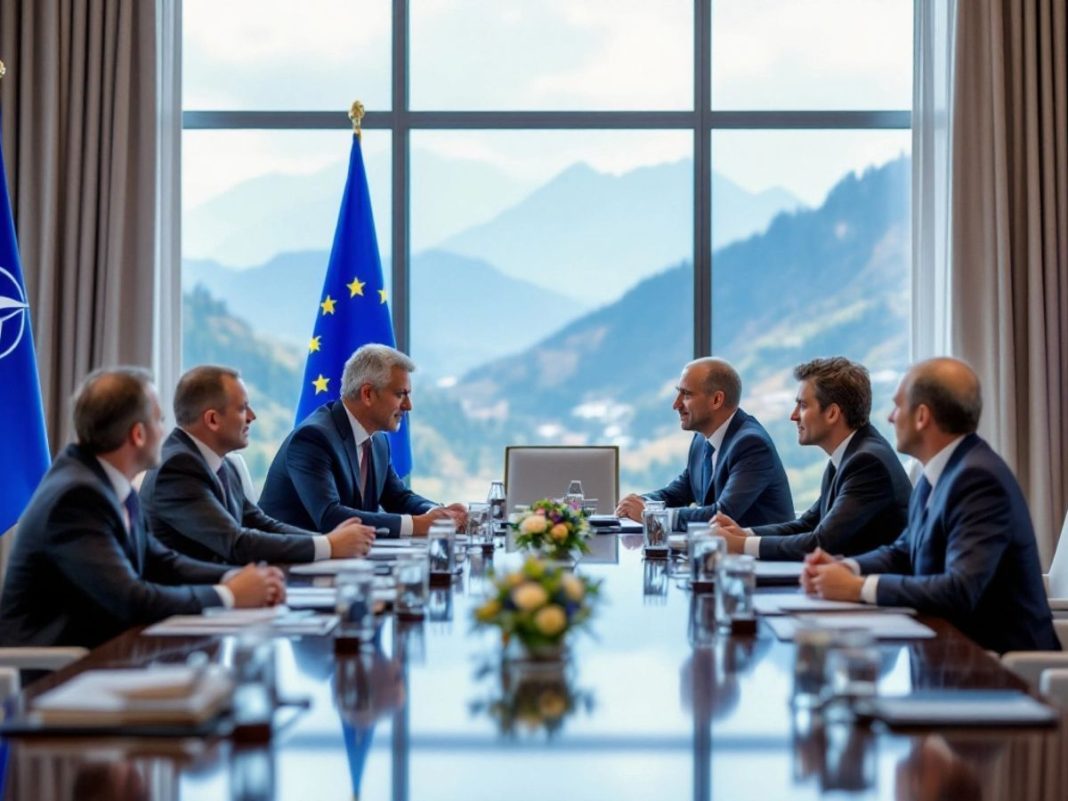NATO and the European Union have called for peace in the Balkans following the life imprisonment of Ratko Mladic, the former head of the Bosnian Serb army, who was convicted of genocide and war crimes. This landmark ruling by the International Criminal Tribunal for the former Yugoslavia (ICTY) is seen as a pivotal moment for justice in the region.
Key Takeaways
- Ratko Mladic, known as the "Butcher of the Balkans," was sentenced to life imprisonment.
- NATO and the EU emphasize the importance of accountability for war crimes.
- The ruling aims to foster peace and reconciliation in the Balkans.
The Conviction of Ratko Mladic
Ratko Mladic was sentenced to life imprisonment for his role in orchestrating some of the most heinous crimes during the Bosnian War, particularly the massacre of over 8,000 Bosniak men and boys in Srebrenica in July 1995. The ICTY’s ruling underscores the international community’s commitment to holding war criminals accountable.
Mladic’s conviction is a significant step in addressing the atrocities committed during the conflict, which lasted from 1992 to 1995. His actions have left deep scars in the region, and the ruling is seen as a message that justice can prevail, even decades after the crimes were committed.
Reactions from NATO and the EU
NATO Secretary General Jens Stoltenberg expressed hope that Mladic’s conviction would encourage the Balkan region to pursue peace and reconciliation. He stated, "This shows that the rule of law works and that those responsible for war crimes must be held accountable."
The European Union echoed this sentiment, urging all Balkan countries to honor the victims of war crimes and to work collaboratively towards a peaceful future. The EU’s call for unity and remembrance is crucial for healing the wounds of the past.
The Path Forward for the Balkans
The conviction of Mladic is not just a legal victory; it represents a turning point for the Balkans. The region has faced numerous challenges in its journey towards stability and peace. Here are some key points regarding the path forward:
- Promoting Reconciliation: Efforts must be made to foster dialogue among communities affected by the war.
- Strengthening Rule of Law: Continued support for judicial processes is essential to ensure accountability.
- Encouraging Regional Cooperation: Countries in the Balkans should work together to build a shared future, focusing on economic development and security.
Conclusion
The life imprisonment of Ratko Mladic serves as a reminder of the importance of justice in the aftermath of conflict. NATO and the EU’s calls for peace and accountability highlight the need for ongoing efforts to heal the region. As the Balkans move forward, the hope is that this ruling will pave the way for a more peaceful and united future, where the lessons of the past are not forgotten but serve as a foundation for a better tomorrow.

